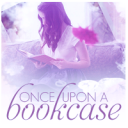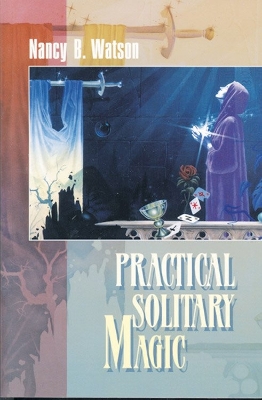
Jo
Written on Sep 8, 2019
I can't remember if it was on a blog or in a book I've read, but Practical Solitary Magic by Nancy B. Watson was recommended for those who were practicing alone, and didn't have anyone to give guidance. This is me, so I bought it, thinking it would be extremely helpful. It was anything but.
Practical Solitary Magic is written like an academic book. It's very easy to understand, but it's cold and detached in a way no other book I've read has been. It felt like reading a textbook, and was very off putting. However, the book started off well, talking about what I consider the science of magic; while other books explain correspondences, and affirmations, etc., they don't go into how or why these things work, but Practical Solitary Magic, at first, did. I found it so interesting, so despite really not liking how it was written, I carried on reading.
But it became very obvious soon afterwards that this book wasn't for me. With previous books, even if I wasn't fully on board with the author's own beliefs, there were still things in them I found interesting or helpful, so I kept reading this one, but really, there was pretty much nothing in this book that would help me.
It's probably because it's over 20 years old, and magick may have moved on since then, but this book makes magick out to be something really complicated and difficult. There's a heavy focus on psychology - Watson actually recommends all readers get themselves a psychotherapist - and magick is very regimented. There are numerous steps to go through, and you can't deviate. We're talking several hours worth of work each and every time, which is nothing like what I've read in other books. While the books mentions witches following their own path, Watson doesn't give much wiggle room. The reader must do this, they must believe in that. And you must become perfectly whole, psychologically speaking, in order to get anywhere, really - and this can take years. It also talks about following the solar cycle and ignoring the lunar cycle, which contradicts everything else I've read. For me, where I'm at, and what I believe in, this book is absolutely not for me, and was so unhelpful.
It's also kind of sexist, too. As anyone who has read other witchcraft books know, colours have correspondences, and this is helpful in candle magic. But when it comes to affairs of the heart or sex, men and women are to use completely different coloured candles. Why? Why is a candle in a certain colour going to work better for a man than a woman? This, of course, excludes those who aren't cis-gendered. It's also fatphobic, implying people would want to be "sylph-like". And my god, the number of times she was insulting to those with mental illness! She talks about "madness" being a punishment from the gods, and talks about "street crazies," "psychopath" criminals - when they're just awful people, and talks about a "lunatic". This also goes hand in hand with her belief that disease is your body's way of telling you that your life is lacking something important, and the benefit of the disease is that you get what you need - the example she gave for herself was that she needed more time to lie around reading, so she ended up with a slipped disk. And this goes for all disease. As someone who has very recently found out two members of my family have very serious, incurable health problems, the idea that they're supposed to be benefitting from the hell they are and will go through, and need to make changes to their life, had me raging. It's probably very much of it's time, as I've said before, when views and opinions were different, and certain things weren't as understood or as talked about as today. But I don't think that really excuses it.
So what with this book being really unhelpful, too regimented and forceful in regards to what we should believe and do, and all kinds of offensive, I really didn't enjoy this book. To be honest, I felt it was a waste of my time.
